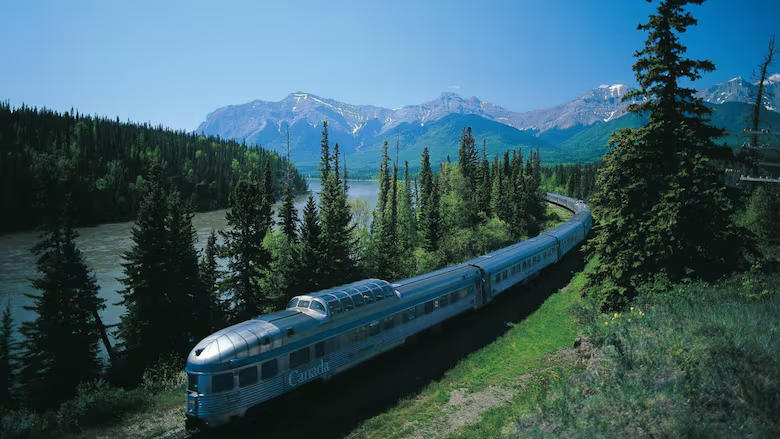NDP warns privatizing high-speed rail from Toronto to Quebec could kill passenger trains in rest of Canada
80 per cent of Via Rail's revenue could be lost to high-speed replacement announced Tuesday: MLA

The federal NDP's transport critic is worried a new high-speed rail project in Ontario and Quebec will kill off publicly-subsidized passenger service in western Canada, the Prairies and the Maritimes.
MP Taylor Bachrach, who represents the riding of Skeena-Bulkley Valley in B.C.'s northwest, says he is in favour of improved rail service, but warns it must benefit the public, as opposed to private companies.
The plan for a consortium of private companies to build and operate 300 km/hour electric trains to run between Toronto and Quebec City, with stops in Ottawa, Montreal and other places, was announced Wednesday by Prime Minister Justin Trudeau. The project is to be overseen by a newly created Crown corporation called Alto.
Currently, train service in that corridor is provided by Via Rail, a Crown corporation, which also provides service from Prince Rupert, on B.C.'s North Coast all the way to Halifax, with stops at major cities in-between.

But more than 90 per cent of Via Rail's passengers — and more than 80 per cent of its revenue — comes from those travelling between Quebec City and Windsor, Ont., according to the corporation's annual reports.
Bachrach says all that could be lost should the new rail line come online in the years ahead.
"The Liberals plan to essentially hand over ridership to the private sector ... and Via Rail is going to be left with the crumbs," he said in an interview with CBC News.
"They're going to be left with a fraction of the revenue that they use to operate rail all across the country."
Instead, he said, the government should be working with Via to provide improved service nationally.
In an email, Via Rail said it is "committed to improving passenger rail in Canada, and we look forward to working with Transport Canada, Alto and the Cadence consortium on advancing the high-speed rail project."
On the Alto website, questions about Via Rail's future are addressed in a frequently asked questions section.
"VIA Rail's passenger rail services in the Québec City to Toronto corridor will continue to operate during the development of Alto," according to the website.
"Eventually, these local services will be integrated with Alto services into a single network, that will maintain connectivity to these existing communities in this corridor."
In an email, Alto's communications office said that "public interest remains at the core of this project," and the infrastructure will "always be owned by Canada.
"While the private sector will operate and maintain the project, "Alto maintains full control over service standards, pricing, and operational requirements."
It did not address the decline in revenue for Via Rail and how that might impact operations.
Via Rail is funded by a combination of revenue from tickets sold and government subsidies aimed at helping it provide rural services.
It has been struggling in recent years with delays and declining revenue, an issue the company blames on the fact that the majority of its track is actually owned by CN Rail, which prioritizes freight over passenger traffic.
Bachrach has also called for changes to this system, introducing the Rail Passenger Priority Act, which calls for the Canada Transportation Act to be amended so that any time a passenger and cargo train want to use the same rail line, the passenger train gets priority.
Speaking Wednesday, he reiterated his desire to see a Canada-wide approach to passenger rail service, with revenue from high-traffic areas like the Toronto-Quebec City corridor helping subsidize service in other parts of the country.
Instead, he said, he fears the new plan will be "putting those long-distance rural routes in peril at a time when really we should be investing more."
With files from Hanna Petersen



